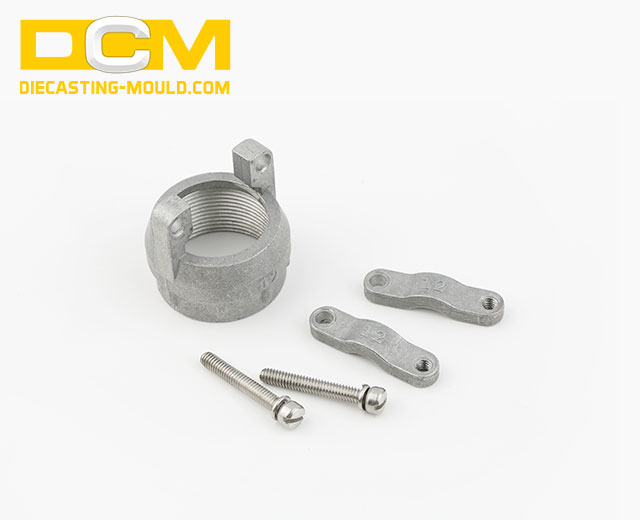Zamak's Uses in Everyday Life & Benefits
Zamak's Uses in Everyday Life & Benefits
Blog Article
Alloy die casting is a modern manufacturing method that utilizes high-pressure systems to add liquid metals to molds. The system is important in engineering because it allows the creation of precise and complex metal structures which are intricate in nature. Various alloys can be used but Zamak and other Zinc based alloys have proven to possess desirable attributes that make them Zinc based.
What is zamaK?
Zamak refers to the base alloys composed of zinc which are usually used in die casting. The bag Zamak is an abbreviation based on the German elements 'Zink', 'Aluminium', and 'Magnesium' while Copper translates to 'Kupfer'. Zamak alloys are well known not only for their casting properties but also for having low melting points, good fluidity, and enhanced mechanical strength. This often enables zamak to readily attain the desired level of complexity and detail in parts that need to be manufactured.
The greater zamak alloys were derived from a classification zout and their numbering way allocated through specification. Zamak 12 is one of the variants which is popularly known to have superior gravity sand casting capabilities.
Zamak's Uses in Everyday Life
These days, zamak is fairly common and we might find it in places such as in our homes and even in industrial tools. Zamak is often sought by manufacturers because of its cost effectiveness and versatility. Provided below is a list of zamak’s general applications:
Household Items: Zamak is used to manufacture various household fixtures like the proper door and towel racks as well as the sink taps. The corrosion resistance coupled with zamak’s casting ability into complex shapes and its mechanical properties is perfect for these household applications.
Car Parts: Zamak is perfect for the automotive industry because it is light and durable. Many car badges, emblem and other small instruments are made out of zamak.
Models and Toys: Zamak is cost effective and serves as a great way for capturing fine details precisely. Die-cast model kits and toy cars are mostly made from zamak.
Kitchen Tools: Zamak is used as the material for the outer shells of various kitchen appliances thus giving the devices a beautiful finish while also providing sturdiness. The mixers of KitchenAid are one of the foremost zamak products in this category.
Benefits of Zamak in Die Casting
Zamak has numerous advantages that have made it the favorite alloy for die casting:
Lower melting point compared to aluminum: Zamak has a low melting point and therefore costs less in energy to die cast.
Aluminum: Zamak has a low melting point and therefore costs less in energy to die cast. Its easy to work with and cheaper than other machined metals.
Inexpensive: Zamak is much more affordable than other metals which is great when building preproduction prototypes or scaling production.
Excellent mechanical characteristics: Zamak demonstrates an exceptional ratio of strength to weight making it useful across all engineering domains and industries.
Attractive polish: Zamak parts take less work to polish thus making them more appealing for further treatment.
Issues of Interest and Further Study
In spite of all the positive aspects of Zamak there some issues that need further investigation:
Zinc Pest: Also know as zinc rot this phenomenon happens when small amounts of lead impurities in the alloy react with the surroundings and cause the material to undergo destructive changes over time. The use of high-purity Zamak alloys can help with this problem.
Weight: Zamak does not possess the same light weight characteristics had by aluminum which could pose challenges for certain applications.
Strength: As much as Zamak can be tough, it can never come close to having the same application strength as steel or iron. This lower weight strength ratio takes away Zamak's usefulness in high demand environments.
Why an Alloy Die Casting Manufacturer?
Picking an alloy die casting manufacturer with the right equipment and experience greatly impacts producing quality die cast parts . Here are few reasons why a professional manufacturer is preferred.
Alloy Selection: Professional manufacturers know how to select the right alloy and casting method for the project.
Quality Bench Marks: Professional manufacturers make auhtentic bench mark parts to check the quality of every piece produced.
Personalization: Able to produce custom parts tailored for particular needs of the customer.
Effective pricing: Combination of modern technologies along with streamlined processes drives high quality components at low cost.
Zamak is beneficial in the die casting industry due to its low cost and versatility. It has diverse applications including automotive components and household fixtures. There are some challenges that arise from the use of Zamak, but the advantages significantly surpass the disadvantages which is why it remains in high demand among global manufacturers. Engage with a sophisticated alloy die casting manufacturer for best outcomes if you seek to entirely optimize die cast parts production.
